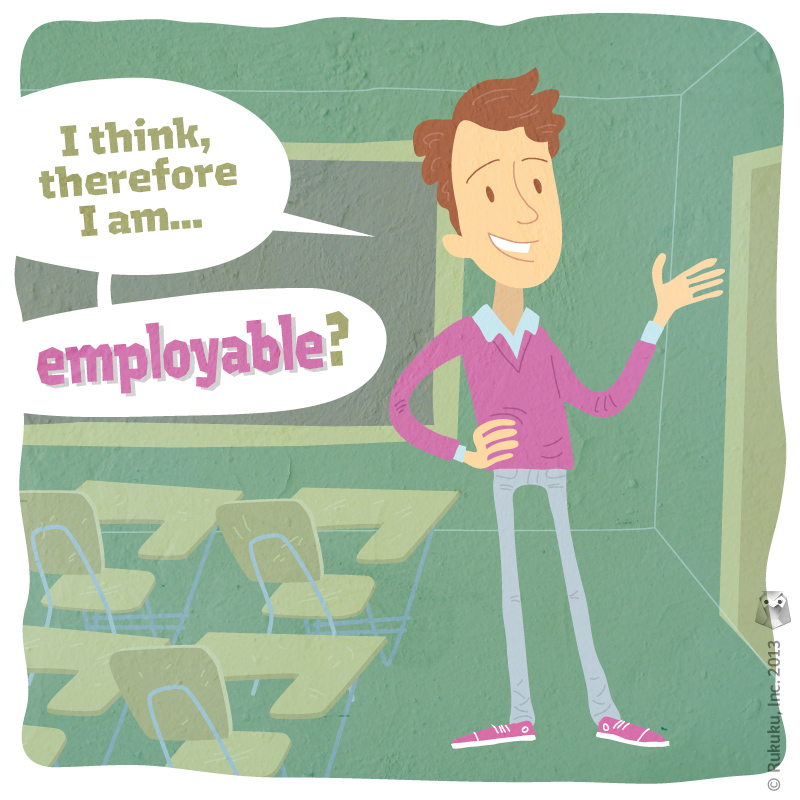What should be the purpose of undergraduate education?
College costs are going up. We’ve written about that a lot here on our blog and so has everyone else anywhere that covers education. These skyrocketing costs have prompted much soul-searching and more number crunching for students, professors, administrators, and policymakers. What is the value of college? And is it worth it?
Undergraduate degree holders earn about $500,000 more over a lifetime compared to students with only a high school diploma, as we discussed last month in this post. Still a good deal overall. In this post, I want to put the numbers aside for a moment and ask the deeper question, what should a college education be about and how much freedom should the student have in determining that?
As an undergrad, I attended a special presentation by the philosophy department that was loosely themed, “Why it is not totally crazy to major in philosophy?” The primary speaker, a professor, offered several lofty goals for four years of higher education, finding oneself, thinking critically, that sort of stuff.
Then he added, as a final point, marketable skills. It was a bit of a buzzkill for us unrealistic, I mean idealistic, types. This professor had a simple solution, though. Take some computer science classes. Seriously, that was his advice, not a CS major or minor, just some classes. It seemed a strange point to hear from a philosophy prof, but looking back, gosh, I wish I had listened.
Last week, the New York Times Magazine offered some insight on the same topic in its article, “How to Get a Job With a Philosophy Degree.” The article, which I recommend reading, highlights some of the ways in which schools are trying to help undergraduate students, especially those in liberal arts majors, develop marketable skills for the post-graduation job search.
The article’s author, Susan Dominus, cites the example of group research and presentations incorporated into a Japanese history class, with the goal being the development of teamwork skills. She brings up an interesting point, though. What about students that simply want to learn, in the classic, academic sense, about Japanese history? Does group work contribute to or distract from their goals? And who makes that determination?
The question was less important when college was cheaper and data less plentiful. Even though recent reforms may bring college costs down, or at least slow the growth in prices, the success of graduates in finding jobs will be even more important. The government will measure it and potentially tie the universities’ eligibility for federal funds to that, among other measures. For these reasons, universities will care about employability even if students don’t.
So what happens to that classic, long-haired, knowledge-loving liberal arts guy that is a staple of freshman dorms everywhere? Well, he’ll probably still be there. But the question is, where will he be by senior year and where will that take him in the years that follow? The answer is not only important to him, who likely has debt related to his education, but to his university as well, which relies on his success in finding a job for its own federal funding.

